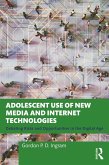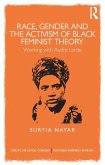Key cultural shifts have enabled a "new sexualization" of women. Neoliberal, consumerist, and postfeminist media culture have shaped ways of understanding female sexuality, embodied by the figure of the choosing, empowered, entrepreneurial consumer citizen-woman, whose economic capital determines feminine success (and failure). Informed by older constructs of privilege such as class, sexuality, race and (dis)ability, this version of sexiness also constrains by folding contemporary femininity back into previous panics about youth, excess, "bad" consumption, and appropriate feminine behavior In
Technologies of Sexiness, Adrienne Evans and Sarah Riley identify how current understandings of sexiness in public life and academic discourse have produced a "doubled stagnation," cycling around old debates without forward momentum. Developing a theoretical and methodological framework, they expand on the notion of a "technology of sexiness." They ask what happens and what is lost when people make sense of themselves within the complexities and contradictions of consumer-oriented constructs of sexiness. How do these discourses come to "transform the self"? This book provides a framework for understanding how women make sense of their sexual identities in the context of a feminization of sexual consumerism. The authors analyze material collected with two groups of women: the "pleasure pursuers" and "functioning feminists," who broadly occupy positions across the pre- and post-Thatcher eras, and the changes brought about by the feminist movement. As one of the first book-length empirical studies to explore age-related femininities in the context of what "sexiness" means today, the authors develop a series of insights into various "technologies of the self" through analyses of space, nostalgia, and claims to authentic sexiness.
Dieser Download kann aus rechtlichen Gründen nur mit Rechnungsadresse in A, B, BG, CY, CZ, D, DK, EW, E, FIN, F, GR, HR, H, IRL, I, LT, L, LR, M, NL, PL, P, R, S, SLO, SK ausgeliefert werden.









